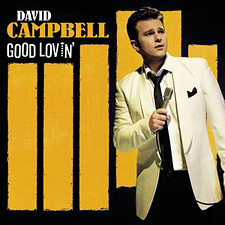 David Campbell is a consummate performer who never fails to entertain. And now this very entertaining man is back with a third, very engaging album.
David Campbell is a consummate performer who never fails to entertain. And now this very entertaining man is back with a third, very engaging album.
Campbell, a cabaret artist and musical theatre star, has branched out to cover the songs of the swinging sixties, although he insists that this is not a concept album. Rather, the songs have all been picked because of their 'mood'.
The songs all deal with love in some form, whether it is lost love, love from afar, or one of the other many types of love. Many of the songs are a tribute to physical beauty, reflecting society's obsession with image and the physical ideal.
Jackie Wilson Said promotes this idea. "I'm in heaven, I'm in heaven, I'm in heaven when you smile". This idea that you can be in heaven just from seeing someone smile is sweet but detracts from the reality of heaven. Heaven is not something that can be experienced simply by seeing someone smile, regardless of how stunning their smile may be.
The idea that love and romance can complete you is also explored on the album. Baby Now That I've Found You is one such song. "Spent a lifetime looking for somebody to give me love like you". The idea that human love can fill the yawning gap that many feel in life is wrong. No amount of romance, no amount of flowers or chocolates or anything like this can fill this gap. Neither can any person. As imperfect beings, we humans are incapable of 'completing' any other person. What can fill this gap is God. Trying to plug this gap with anything else simply won't work.
How Can I be Sure poses the question of certainty in an uncertain world. "How can I be sure in a world that's constantly changing?" The idea that nothing is assured in this world is one worth exploring. As Christians, we have a certain amount of assuredness because of Christ's work on the cross. Non-Christians do not have this and it is interesting to see this idea being put forward. Of course, this is a love song, and so the conclusion is reached that we can have that assuredness with the ones that we love. While this conclusion is not quite right, it is interesting to see that the question is being posed at all.
This album is thoroughly enjoyable and always entertaining. The issues it raises (however unconsciously) are always very relevant and hopefully Campbell's fans will listen past the impressive vocals and think about the lyrics.























